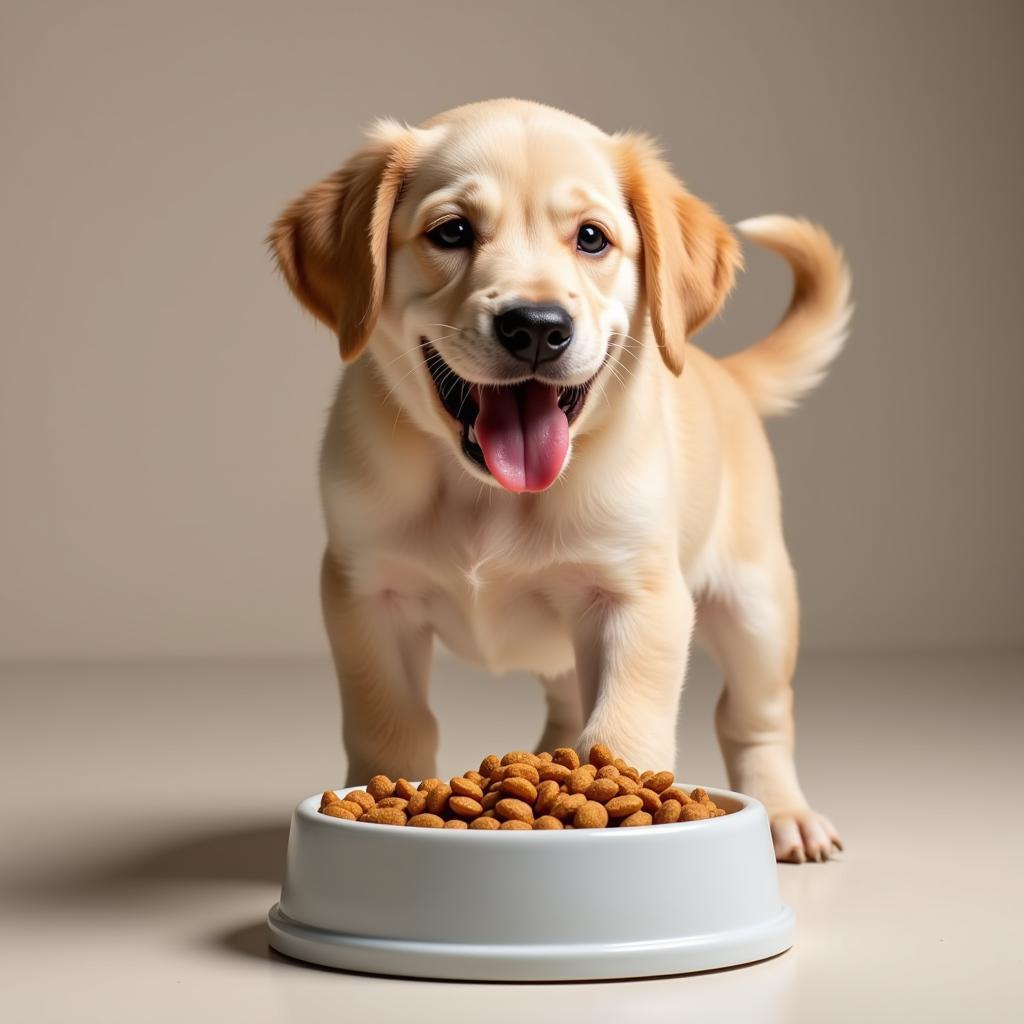My dog won’t eat food but devours treats! This is a common conundrum that many dog owners face. While it can be frustrating, understanding the reasons behind this picky eating behavior is the first step towards a solution. This often points to a preference for the higher palatability of treats, but sometimes there can be an underlying medical reason. Let’s explore the possible causes and solutions for a dog who prefers treats over their regular food. After reading this article, you’ll be well-equipped to help your furry friend develop healthier eating habits. And if your cat is a picky eater as well, check out some tips for low magnesium cat food.
Why Your Dog Snubs Food for Treats
There are several reasons why your canine companion might be turning their nose up at dinner. One common reason is simply preference. Treats are often designed to be highly palatable, bursting with flavors and aromas that dogs find irresistible. Compared to their regular kibble, which may seem bland in comparison, treats are simply more exciting! Another reason could be behavioral. If your dog has learned that refusing their food will eventually lead to treats, they will continue this behavior. It’s a classic case of unintentional reinforcement. Sometimes, a sudden change in appetite can indicate an underlying medical condition. Dental problems, gastrointestinal issues, or even stress can all contribute to a decreased appetite.
It is crucial to differentiate between pickiness and a potential medical issue. If your dog exhibits other symptoms like lethargy, vomiting, or changes in bowel movements, consult a veterinarian immediately. They can determine if there is an underlying health concern that needs to be addressed.
Addressing the Picky Eating Habit: Tips and Tricks
So, what can you do if your dog won’t eat food but eats treats? First, establish a consistent feeding schedule. Feed your dog at the same times each day and remove any uneaten food after 20-30 minutes. This helps create a routine and prevents grazing. Second, avoid free-feeding. Leaving food out all day can lead to picky eating habits, as your dog knows there’s always something available. Having dedicated mealtimes helps regulate their appetite. Third, make mealtime more appealing. Sometimes, simply warming up the food or adding a small amount of low-sodium broth can make it more enticing. You can find more recipes for homemade dog food to lose weight.
Another helpful tip is to gradually transition to a new food. If you’re changing your dog’s diet, mix a small amount of the new food with the old, gradually increasing the proportion of new food over several days. This allows your dog’s digestive system to adjust and helps them get used to the new flavor and texture.
Medical Reasons for Loss of Appetite in Dogs
While pickiness is often behavioral, it’s important to rule out any underlying medical conditions. Dental problems, like a broken tooth or gum inflammation, can make chewing painful, causing your dog to avoid eating. Gastrointestinal issues, such as inflammatory bowel disease or pancreatitis, can also lead to a decreased appetite. Even stress and anxiety can affect a dog’s eating habits. A visit to the vet is essential for a proper diagnosis and treatment plan. Don’t hesitate to bring your concerns to your veterinarian’s attention. They can conduct a thorough examination and recommend the best course of action.
Preventing Picky Eating in Puppies
Prevention is always better than cure. Start establishing healthy eating habits from puppyhood. Avoid giving too many treats, and stick to a consistent feeding schedule. This helps prevent your puppy from developing picky eating habits in the first place. You could also join the Orinda food trucks 2024 festival for a treat!
 Happy Puppy Eating Kibble
Happy Puppy Eating Kibble
“Early intervention is key,” says Dr. Emily Carter, a veterinary nutritionist. “Establishing a consistent feeding routine and avoiding excessive treats in puppyhood can significantly reduce the likelihood of picky eating later in life.”
Conclusion: A Balanced Approach to Feeding
Addressing a dog who won’t eat food but eats treats requires a balanced approach. By understanding the underlying causes and implementing the strategies outlined above, you can encourage your dog to develop healthier eating habits and enjoy their meals once again. Remember, consistency and patience are crucial. If you are worried about your dog’s health, always consult with a veterinarian. If you are planning a day out, check out where to find the Camp Pendleton food trucks.
“Remember, treats should be a supplement, not a substitute for a balanced diet,” adds Dr. Carter. “By working with your veterinarian, you can ensure your furry friend gets the nutrition they need to thrive.”
FAQ
- Why is my dog suddenly picky with food? Sudden changes in appetite can be due to various factors, including illness, stress, or a simple preference for treats.
- How do I transition my dog to a new food? Gradually mix the new food with the old over several days, increasing the proportion of new food slowly.
- Should I be concerned if my dog only eats treats? Yes, a diet solely of treats can lead to nutritional deficiencies. Consult your veterinarian.
- How can I make my dog’s food more appealing? Try warming the food or adding a small amount of low-sodium broth.
- What are signs of a medical condition affecting my dog’s appetite? Lethargy, vomiting, changes in bowel movements, and sudden weight loss can indicate an underlying health problem.
- Can stress cause a dog to stop eating? Yes, stress and anxiety can significantly impact a dog’s appetite.
- How often should I feed my dog? Most adult dogs benefit from two meals a day.
You may find our article on the Town Food Truck Festival helpful for ideas on dog-friendly events.
Need more help? Contact us:
Phone: 02437655121
Email: minacones@gmail.com
Address: 3PGH+8R9, ĐT70A, thôn Trung, Bắc Từ Liêm, Hà Nội, Việt Nam.
We have a 24/7 customer service team.